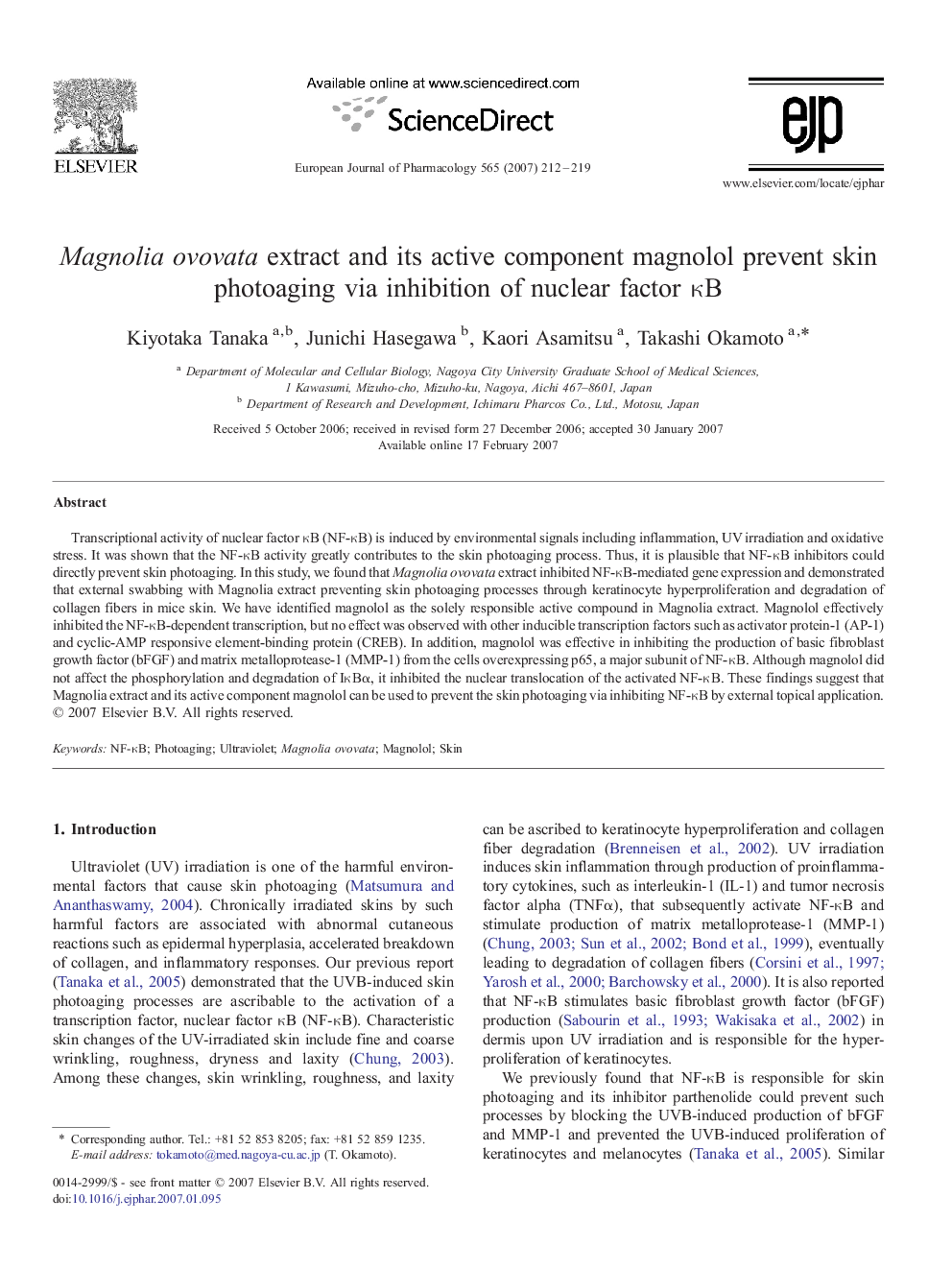| Article ID | Journal | Published Year | Pages | File Type |
|---|---|---|---|---|
| 2536204 | European Journal of Pharmacology | 2007 | 8 Pages |
Transcriptional activity of nuclear factor κB (NF-κB) is induced by environmental signals including inflammation, UV irradiation and oxidative stress. It was shown that the NF-κB activity greatly contributes to the skin photoaging process. Thus, it is plausible that NF-κB inhibitors could directly prevent skin photoaging. In this study, we found that Magnolia ovovata extract inhibited NF-κB-mediated gene expression and demonstrated that external swabbing with Magnolia extract preventing skin photoaging processes through keratinocyte hyperproliferation and degradation of collagen fibers in mice skin. We have identified magnolol as the solely responsible active compound in Magnolia extract. Magnolol effectively inhibited the NF-κB-dependent transcription, but no effect was observed with other inducible transcription factors such as activator protein-1 (AP-1) and cyclic-AMP responsive element-binding protein (CREB). In addition, magnolol was effective in inhibiting the production of basic fibroblast growth factor (bFGF) and matrix metalloprotease-1 (MMP-1) from the cells overexpressing p65, a major subunit of NF-κB. Although magnolol did not affect the phosphorylation and degradation of IκBα, it inhibited the nuclear translocation of the activated NF-κB. These findings suggest that Magnolia extract and its active component magnolol can be used to prevent the skin photoaging via inhibiting NF-κB by external topical application.
